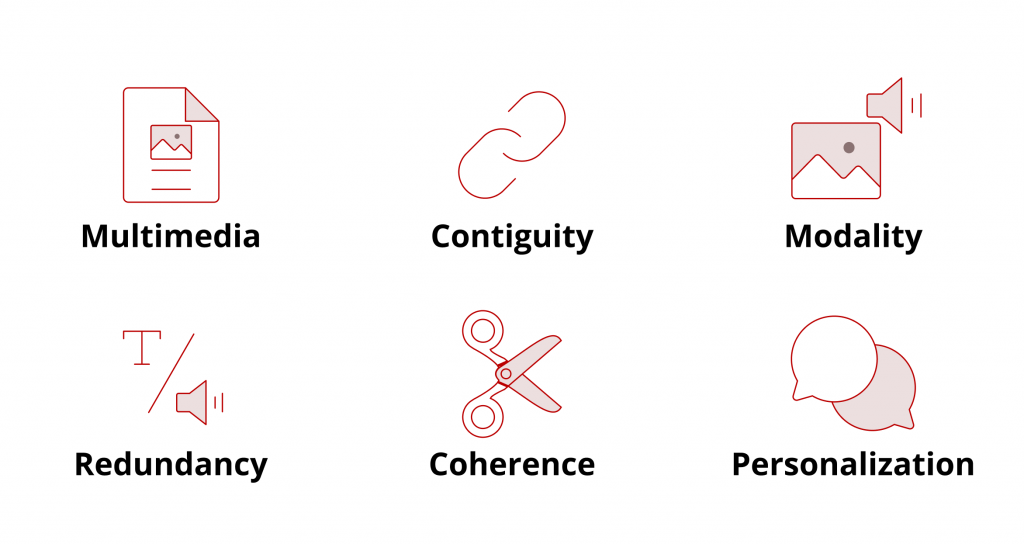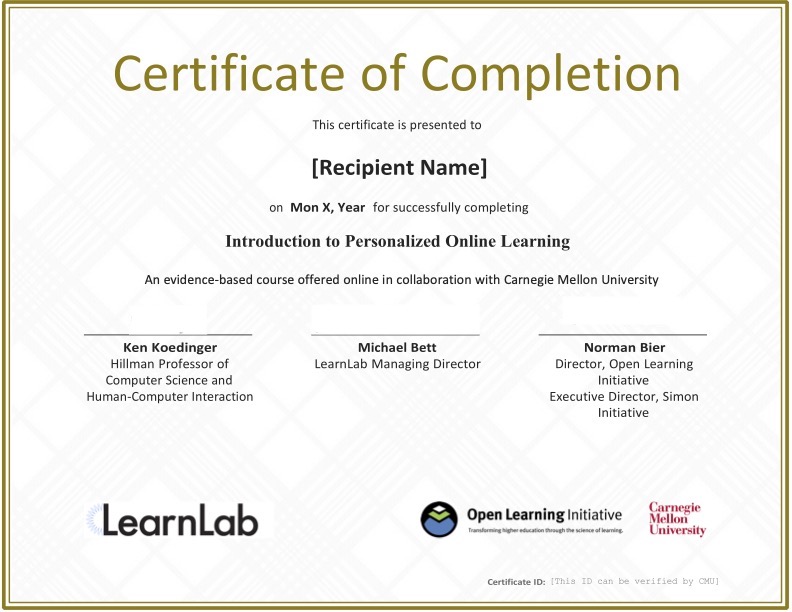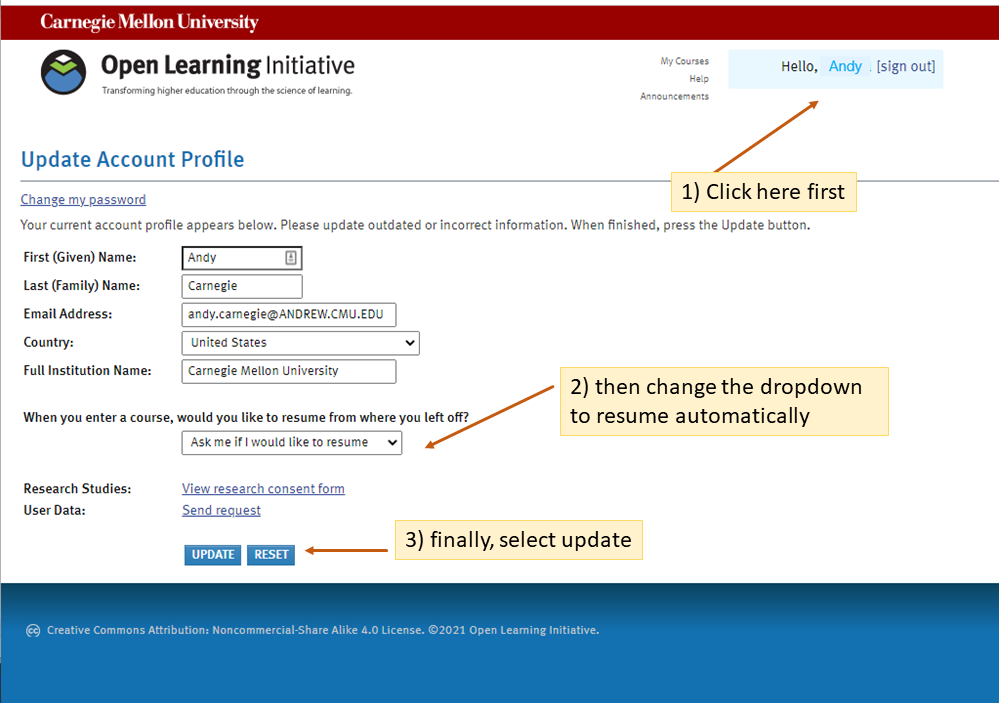UX Design for Effective Instruction


Start Any Time
Work on your pace and you will have instructors available to help you answer any questions.

Duration
Approximately 3 weeks, 6-8 hours/week

Fee
$1500 - Professional Rate
$500 - Full-time Student Rate*
*Proof of full time student enrollment required. Acceptable forms of id include a letter from your university’s registrar office or an unofficial transcript. Email your documents to learnlab-help@lists.andrew.cmu.edu
Certificate Course Description:
How do you ensure that you are able to design effective instructional activities? Richard Mayer developed 6 powerful principles of multimedia learning that, if followed, will help you develop effective learning experiences for your learners.
In this course, you will learn about the principles, why they work, and how to apply them in your own work. After completing this certificate course, you will be able to use multimedia principles in designing effective, engaging digital learning experiences whether it is a video, presentation, or a fully online course. You will learn how to apply each of these methods in a practical context and interpret the result to design effective learning experiences.
Our team hosts office hours for all courses over Zoom on the 2nd and 4th Wednesday of each month, 10:00 AM – 11:00 AM EDT/EST (4:00 PM – 5:00 PM CAT). On 2nd Wednesdays, Dr. Ken Koedinger, who is the Director of the Masters of Educational Technology and Applied Learning Sciences (METALS) program, will be available. On 4th Wednesdays, you will have the opportunity to speak with our learning engineers.
Module 1: Multimedia Principle & Contiguity Principle
- Describe the multimedia principle and why it is effective for learning
- Recognize when the multimedia principle has been violated and when it has been applied well
- Describe the contiguity principle and why it is effective for learning
- Recognize when the contiguity principle has been violated and when it has been applied well
Module 2: Modality Principle & Redundancy Principle
- Describe the modality principle and why it is effective for learning
- Recognize when the modality principle has been violated and when it has been applied well
- Describe the redundancy principle and why it is effective for learning
- Recognize when the redundancy principle has been violated and when it has been applied well
Module 3: Coherence Principle & Personalization Principle
- Describe the coherence principle and why it is effective for learning
- Recognize when the coherence principle has been violated and when it has been applied well
- Describe the personalization and embodiment principles and why they are effective for learning
- Recognize when the personalization and embodiment principles have been violated and when they have been applied well
Module 4: Course Project
At the end of the course, you’ll have an opportunity to do a little project where you will apply multimedia principles to improve UX design of existing e-learning lecture. That will provide you with a nice experience to apply the fundamentals you will learn in the modules to a larger, more authentic, context. It will be graded by the instructor and you will receive personalized feedback along with a sample solution.
None
Researchers, product/UX designers, and instructional designers who want to improve e-learning design and design effective instruction. Anyone interested in edtech.
What you'll learn
This course will help you:
- Apply the following multimedia principles:
- Multimedia principle
- Contiguity principle
- Modality principle
- Redundancy principle
- Coherence principle
- Personalization principles
- Recognize when any of the principles are violated and when they have been applied well
Course Instructors

Dr. Ken Koedinger
is a professor of Human-Computer Interaction and Psychology at Carnegie Mellon University. Dr. Koedinger has an M.S. in Computer Science, a Ph.D. in Cognitive Psychology, and experience teaching in an urban high school. His multidisciplinary background supports his research goals of understanding human learning and creating educational technologies…
Certificate
Upon successful completion of the program, participants will receive a verified digital certificate of completion from Carnegie Mellon University’s Open Learning Initiative.

In addition to the knowledge and immediately applicable frameworks you will gain by attending your selected courses, you will benefit from:
- A digital, verified version of your Executive Certificate (Smart Certificate) you can add to your resume and LinkedIn
- Networking with a global group of your peers and instructors for advancing your career
Register Now
Register and start taking the course in four steps:
1. Enter your email address
2. Watch this short video for instructions on how to register in OLI.
3. For this course, copy the course key: MPEL-001
4. Click on this link to Carnegie Mellon University’s Open Initiative to register and try out the course for 48 hours before payment is due.
5. (Optional but highly recommended) Set OLI to automatically resume from where you left off in the course.
1) Click on your name in the upper right corner to bring up your OLI profile settings.
2) Change the option on the dropdown to resume automatically.
3) Lastly, select UPDATE.
You are all set!



